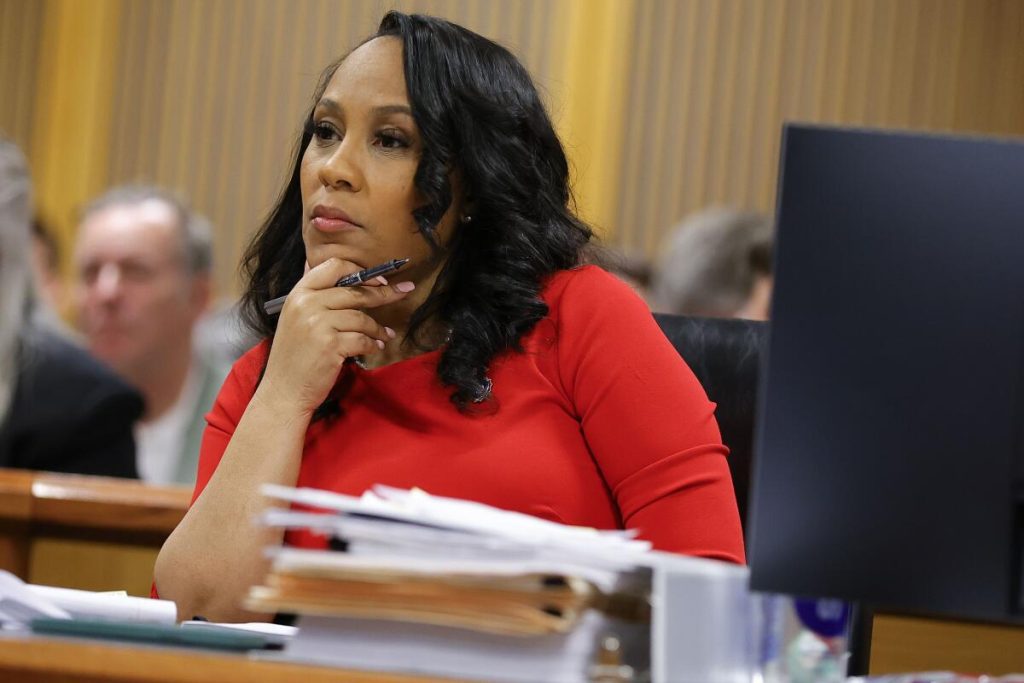Former President Donald Trump’s latest legal maneuver in Georgia adds another layer of complexity to the ongoing legal battles stemming from the 2020 election. By seeking to disqualify the district attorney prosecuting him, Trump is leveraging allegations of conflict of interest to challenge the integrity of the legal process. This article delves into the implications of Trump’s appeal, the dynamics of the case, and the broader political implications of his legal strategy.
The Allegations Against the Prosecutor: At the center of Trump’s appeal is the alleged romantic relationship between Fulton County District Attorney Fani Willis and a former top deputy involved in prosecuting the case against Trump. Trump and his co-defendants argue that this relationship creates a conflict of interest that compromises the impartiality of the prosecution and warrants Willis’s disqualification. The appeal presents a critical test of the judiciary’s ability to address concerns of bias and maintain the integrity of the legal process.
Legal Precedents and Judicial Oversight: The decision to disqualify a prosecutor is a weighty matter that requires careful consideration of legal precedents, ethical standards, and the specific circumstances of the case. While Judge Scott McAfee expressed reservations about the relationship between Willis and her former deputy, he ultimately ruled against disqualification, citing insufficient evidence of bias or impropriety. The appeals court now faces the task of reviewing McAfee’s ruling and determining whether there are grounds for further investigation or intervention.
Political Ramifications and Strategic Maneuvering: Trump’s bid to disqualify the prosecutor is not only a legal strategy but also a political maneuver aimed at shaping public perception and influencing the outcome of the case. By casting doubt on the integrity of the prosecution, Trump seeks to undermine the credibility of the legal process and rally support among his base. Additionally, the appeal could serve to delay or disrupt the proceedings, providing Trump with leverage as he navigates multiple legal challenges.
Challenges to Judicial Independence and Rule of Law: The controversy surrounding Trump’s appeal raises broader questions about the independence of the judiciary and the rule of law. Critics argue that Trump’s efforts to discredit the prosecutor represent a dangerous encroachment on judicial autonomy and undermine public trust in the justice system. Moreover, the case underscores the need for robust safeguards to prevent political interference in legal proceedings and uphold the principles of fairness and impartiality.
Implications for the Legal Landscape and Democratic Norms: The outcome of Trump’s appeal in Georgia will have far-reaching implications for the legal landscape and democratic norms in the United States. A decision to disqualify the prosecutor could set a precedent for future cases involving allegations of prosecutorial bias or conflicts of interest. Conversely, a rejection of Trump’s appeal could reaffirm the judiciary’s commitment to upholding the rule of law and resisting political pressure.
As Trump’s legal battles continue to unfold, the case in Georgia stands as a pivotal moment in the intersection of law, politics, and democracy. By challenging the prosecutor’s authority, Trump tests the resilience of democratic institutions and the rule of law. Ultimately, the outcome of the appeal will shape perceptions of justice, accountability, and the integrity of the electoral process in the United States.
